
The literary world is reeling from the death of John le Carré. The veteran espionage writer has passed away at the age of 89, having redefined the concept of the spy novel by drawing on biographical details from his own life.
Born David John Moore Cornwell, le Carré served in both MI5 and MI6. He drew on his experiences in both organisations to fashion a series of bestsellers, including Tinker Tailor Soldier Spy and The Spy Who Came In From The Cold.
Le Carré's attention to detail and atmosphere made him a favourite of film and television makers. We're honouring his memory with a round-up of his best book adaptations.
1. The Spy Who Came In From The Cold (1965)
Le Carré and actor Richard Burton made an irresistible pairing in this adaptation of the author's 1963 thriller. It was the book that put Le Carré on the map, filtering the Cold War conflict between east and west through the jaded persona of British agent Alec Leamas. Burton is typically haunting and arresting as Leamas, sent behind the Iron Curtain on an important mission to spread disinformation.
There are connections within the story to 'The Circus', the chain of espionage agents that would eventually include Le Carré's most famous creation, George Smiley. Martin Ritt's atmospheric direction in The Spy Who Came In From The Cold, coupled with Oswald Morris' cinematography, effectively conjures a paranoid atmosphere of a world split in two. Burton was Oscar nomination for his performance, and the film's art direction was also recognised with a nomination.
2. Tinker Tailor Soldier Spy (1979)
Alec Guinness stepped into the role of weatherworn MI6 operative George Smiley in this acclaimed TV miniseries. Possibly Le Carré's most celebrated novel, Tinker Tailor Soldier Spy is the steadily absorbing story of a mole inside MI6. The recently 'retired' Smiley, who was in fact pushed out thanks to internal politics, is called in to draw out the mole, a person with suspected links to Smiley's Soviet nemesis, Karla.
Smiley is a fascinating character: almost a complete blank, he's defined by his methodical system of elimination, rarely, if ever, letting his guard down. Guinness gets under his skin superbly, Smiley's vocal cadence and body language suggesting a lifetime of dedication to his MI6 craft, even as it threatens to come at the expense of his own principles. Smiley must confront the notion that his own allies have personal gain in selling out Great Britain, leading to the merest suggestion of conflict beneath the icy resolve. Guinness won a BAFTA for his engrossing work in the role of Smiley.
3. The Russia House (1990)
The late Sean Connery gives a superb performance in this underrated Le Carré adaptation. He plays British publisher Barley, coerced by British intelligence to gather information on the Russians, and he eventually finds himself falling in love with the alluring Katya (Michelle Pfeiffer). The slow-burn chemistry between the two stars suggests the fiery passion that is struggling to break out of the Cold War edifice, Barley and Katya's alliance signalling the eventual resolution of Cold War tension between east and west.
The movie is fuelled by Jerry Goldsmith's achingly beautiful jazz score (Barley is a jazz musician within the context of the movie), which further suggests the human impulses vying against the machinery of the east-west conflict. It's a fine showcase for Connery's talents, showing that he was capable of subtlety and restraint as well as tempestuous anger.
4. The Constant Gardener (2005)
Ralph Fiennes plays a British diplomat trying to solve his wife's murder in this powerful take on Le Carré's 2001 novel. City of God director Fernando Meirelles interweaves past and present to bring us the story of a marriage gone awry amid the political spectre of the drug trade in Kenya. Rachel Weisz won an Oscar for her portrayal of Tessa, a complex character who gradually comes into view across the film's fragmented narrative, and whose death spurs her husband Justin towards answers.
This isn't a story that occupies Cold War-era Europe or the UK. Rather, it examines a further-flung location, but one that is wracked by the subterfuge and intrigue of Le Carré's other tales. In stark contrast to his movie City of God, Meirelles largely keeps things melancholic and introspective, with the excellent supporting cast including Pete Postlethwaite and Bill Nighy.
5. Tinker Tailor Soldier Spy (2011)
The second adaptation of Le Carré's celebrated book was met with much critical acclaim. Many thought that Alec Guinnes had delivered the definitive portrait of George Smiley, but Gary Oldman, in his first Oscar-nominated performance, made it his own. It's a canny bit of casting: so famous for playing cranked-up psychos, Oldman internalises everything, making more of a statement with his owlish glasses and paunch than any amount of shouting.
His Smiley is at the centre of Tomas Alfredson's discreetly atmospheric movie, which brilliantly absorbs the greying, tobacco-stained world of 'the Circus'. It's a labyrinthine story, and a challenging one to follow but an outstanding cast of British veterans keeps us hooked. Benedict Cumberbatch, Colin Firth, Tom Hardy, Mark Strong, Toby Jones, Ciaran Hinds and John Hurt put a human face on the corruption within MI6.
6. A Most Wanted Man (2014)
The late, great Philip Seymour Hoffman gave his penultimate performance in this simmering Le Carré' thriller. Rotund of physique and Germanic of accent, Hoffman proved, once again, that he could transform into practically anyone. In this instance, he plays the morally ambivalent Gunther Bachmann, one of many figures at the centre of a brewing diplomatic crisis.
The story revolves around a half-Chechen, half-Russian immigrant, who turns up, having been brutally tortured, in Hamburg's Islamic community, laying claim to his father's ill-gotten fortune. This ignites a conflict between German and US security forces, a complex web of treachery well-orchestrated by director Anton Corbijn. Hoffman is the standout but there are also terrific performances from Rachel McAdams, Willem Dafoe and Daniel Bruhl.
7. The Night Manager (2016)
Our final Le Carré adaptation on this is an acclaimed BBC miniseries, one that turns up the raunch and the intrigue. Tom Hiddleston is the unassuming night manager of the title, who is plucked from his seemingly ordinary life into a clandestine operation against a vicious arms dealer. Hiddleston's character Jonathan risks life and limb as he squares with the deadly Richard Roper (a superbly against-type Hugh Laurie) and dallies with the latter's mistress Jemima (Tenet's Elizabeth Debicki).
Director Susanne Bier keeps all the wheels in motion, eliciting fine performances from the cast (this also includes Olivia Colman as intelligence officer Angela). The production was an award-garlanded success, eventually snagging Emmy, BAFTA and Golden Globe wins.
What is your favourite John le Carré adaptation? Let us know @Cineworld.
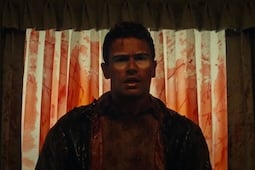
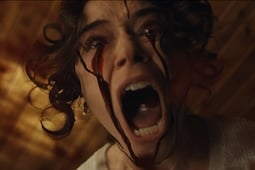

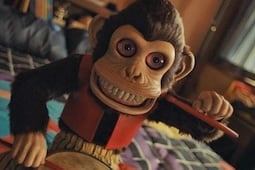
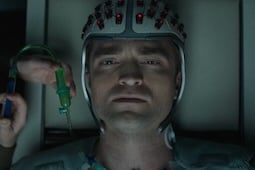
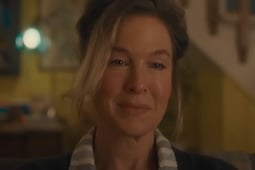

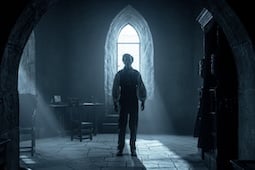





.jpg)
.png)






